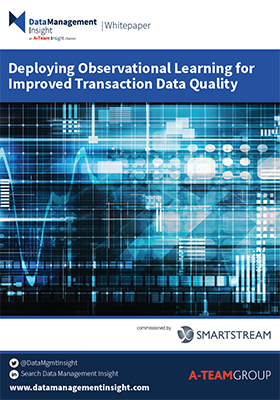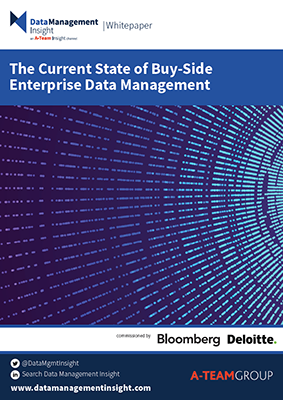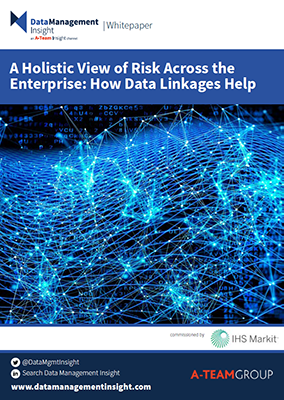Data Management Insight White Paper
Embracing Automation and Collaboration Tools to Inject Reference Data into the Trade Lifecycle
Digital transformation in the financial services sector has raised many questions around data, including the cost and volume of reference data required by each financial institution. Firms need flexible access to the reference data required to ensure workflows can proceed without interruption. ‘One-size-fits-all’ bulk data licensing models are increasingly less fit for purpose. Emerging solutions...
Can ‘Observational Learning’ Help Improve Data Quality?
Data quality is a pre-requisite for financial institutions seeking to automate their operations. But given the huge volumes of transaction data, often in a wide array of formats, it is very difficult to achieve. Can newer AI-based techniques such as observational learning actually help or are they just hype? This white paper explores: What observational...
Reference Data Usage Management for Financial Institutions
The ongoing struggle to track reference data usage and implement controls to manage and permission access to the data means many financial institutions lack visibility and understanding of how data services are being used by staff, teams, business units and IT applications. This can have expensive and potentially damaging consequences in terms of unexpected invoices...
How to leverage the LIBOR transition to improve your data management game
The final goodbye to Libor has been described as the Y2K moment for data managers in financial services – and with the phase-out slated for the end of 2021, firms need to act now to ensure a smooth transition. The replacement of Libor with alternative benchmarks presents an immense challenge for financial institutions, especially given...
The Current State of Buy-Side Enterprise Data Management
The advent of enterprise data management (EDM) held up the promise of more streamlined operations, improved cost efficiencies and a tighter rein on data access. But after a decade spent trying to implement EDM, few investment managers feel they are getting the control, quality or insights they were expecting. According to an A-Team survey of...
A Holistic View of Risk Across the Enterprise: How Data Linkages Help
Gaining a comprehensive view of their risk exposures has long been a challenge for financial institutions. Standard measures have been embraced to measure and manage market risk, and the emergence of a standard legal entity identifier in the form of the LEI has gone some way toward addressing the issues of counterparty and credit risk...
Contractual Rights Management: It’s Time to Take Control of Data Usage
Contractual rights management has become a hot topic in financial information and market data circles following a number of public instances involving high-profile financial institutions breaching licensing agreements with data vendors – and paying the price with both significant financial penalties and damaged reputations. A potential solution for contractual rights management is the emerging Open...
Adopting AI for Superior Reconciliations
Firms’ reconciliation and exceptions management processes are manually intensive, expensive and prone to error. With rising compliance costs and greater competition narrowing margins in financial services, firms are looking to streamline their reconciliations processes through automation, giving them the opportunity to reduce the number of exceptions they manage and the time it takes to deal...
Addressing the Reference Data Challenges of SFTR
The EU’s Securities Financing Transactions Regulation (SFTR), which comes into effect in April 2020, is a data-heavy transaction reporting regulation along the lines of MiFIR and EMIR, but has a significant reference data element as well. The regulation is extensive, with some 150 data fields in its mandatory regulatory reports, a dozen of which will...
Data as the Catalyst for Innovation in Asset and Wealth Management
Fund managers and wealth management firms are being squeezed between downward pressures on sources of revenues and upward pressures on costs. Firms are facing a migration to passive investment funds, with some research suggesting a one-third drop in active management fees by 2023. Meanwhile, the ongoing regulatory onslaught is adding to costs. Under pressure to...











